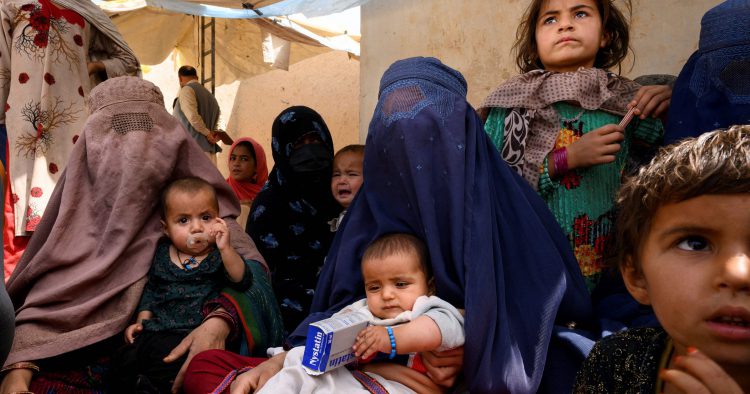A mom is struggling to preserve her daughter in a large colony of mud brick buildings in western Afghanistan, which houses families displaced by drought and war.
Aziz Gul’s husband married their 10-year-old without notifying his wife, accepting a down payment to sustain his family of five children. He warned her that if they didn’t, they’d all starve. To save the others, he had to sacrifice one.
As their country slides into a poverty vortex, many of Afghanistan’s rising number of underprivileged individuals are making such desperate decisions.
When the Taliban seized control in mid-August amid a chaotic departure of US and NATO soldiers, Afghanistan’s aid-dependent economy was already on the verge of collapse. The international community froze Afghanistan’s assets abroad and suspended support, hesitant to deal with a Taliban administration due to the Taliban’s previous rule’s reputation for cruelty.
For a country already racked by conflict, famine, and the coronavirus epidemic, the repercussions have been devastating. Employees of the state have not been paid in months. Malnutrition afflicts the most vulnerable, with relief organizations estimating that more than half of the population is facing severe food shortages.
The situation in Afghanistan is deteriorating day by day, and children, in particular, are suffering, according to Asuntha Charles, national director of World Vision in Afghanistan, which runs a health center for displaced persons near the western city of Herat. “It breaks my heart today to see families willing to sell their children to feed other family members.”
In the region, arranging weddings for extremely young girls is prevalent. To finalize the transaction, the groom’s family pays money, and the kid normally stays with her parents until she is at least 15 years old. Despite this, others say they’d let potential grooms to take extremely young girls or are even seeking to sell their homes because they can’t afford even basic meals.
Gul is defiant, which is rare in this extremely patriarchal, male-dominated country. She claims she would kill herself if her daughter, Qandi Gul, was taken away from her.
“My heart stopped beating” when her husband told her he had sold Qandi. Gul continued, with Qandi at her side, peeking shyly from behind her sky-blue headscarf, “I wish I could have died at that time, but maybe God didn’t want me to die.” “Every time I think of that night… I die and then resurrect.”
Her husband said that he sold one to save the others, claiming that they would have all perished if he hadn’t. She informed him, “Dying was much better than what you have done.” Gul gathered her brother and village elders, and with their aid, she was able to obtain a “divorce” for Qandi on the condition that she reimburse the 100,000 afghanis (about $1,000) that her husband had received. She doesn’t have the funds.
Her husband ran away, possibly fearful that Gul would report him to the authorities. Forced marriages were recently outlawed by the Taliban regime. Gul says she’s not sure how long she’ll be able to keep the relatives of the potential groom, a man in his early twenties, at bay.
“I’m in such a desperate situation.” “I have said that if I can’t provide money to pay these people and keep my daughter by my side, I will kill myself,” she claimed. “But then I remember the other kids.” What will become of them? “Who is going to feed them?” Her eldest child is 12,her youngest — her sixth — just two months.
Hamid Abdullah, a father of four, was selling his young daughters into arranged marriages in another area of the camp, desperate for money to cure his chronically sick wife, who was pregnant with their fifth child.
He claims he is unable to return the money he borrowed to pay for his wife’s medical care. As a result, three years ago, he got a down payment for his eldest daughter Hoshran, now seven years old, in an arranged marriage to an 18-year-old.


















